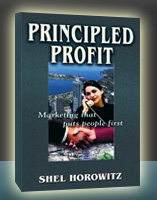How to Protect Yourself Against Stock Manipulation Techniques
|
As surely as our tides ebb and flow, the values of our major stock market indices also tend to fluctuate over time, perhaps not aligned with the phases of the Moon, but consistently enough to support investor expectations. One can also map investor confidence as these fluctuations occur, typically filled with optimism when values are rising and in the depths of depression when prices plummet. When the latter conditions are prominent, the average investor seems to stop in his tracks, scurry back to his broker, and immediately issue sell orders for stocks in his 401K. Rumors also tend to abound at times like these, many suggesting that stop manipulation is present. Government regulators are quick to denounce these rumors. Investor confidence must be restored in our markets to ensure market health and liquidity. However, when optimism levels approach irrational exuberance and caution is no where to be found, a “perfect storm” is created for one of our more unethical business practices– stock market manipulation. Despite the best efforts of SEC officials, regulators, and our law enforcement agencies, stock manipulation will always be with us to stay. These criminal activities can be reduced to a tolerable level, but they can never be eliminated. Attempting to do so is like squeezing a balloon – it will always respond by popping out somewhere else. Protecting yourself against the unethical behavior of others then becomes your personal mission if investing in the stock market is a given in your retirement planning efforts. The intended result of these nefarious activities is to separate you from your hard-earned capital, plain and simple. Your best defense starts with awareness. As a start, here are the more prevalent tactics employed in this fraudulent activity:
These shenanigans rarely involve large companies with heavily traded shares. Criminals tend to focus on smaller offerings with low liquidity and questionable reporting practices. These smaller issues are easier to manipulate, and many times the market maker for these stocks tiptoes around the law to unload inventories that he has been forced to buy as the buyer of last resort. The common thread in these stories is a public communication of some type, followed by artificial trading activity, and therein lies the path to protection. To begin with, you must be skeptical of outrageous marketing claims of any sort. If it sounds too good to be true, it most likely is. However, your skepticism must also go to a deeper level. You must question the validity of any research report or press release that piques your interest. Do your own research. Check out the author’s credentials. Is he widely published, and does he have numerous articles in the public domain? Did the author of investment advice also print a disclaimer as required by the SEC? Are any markets immune to manipulation? The <a href=”https://www.forextraders.com/” rel=”nofollow” target=”_blank”>forex market</a> may be less sensitive due to its size alone, but unscrupulous brokers have been prosecuted for manipulating currency spreads. The Commodities Futures Trading Commission has worked hard on ridding the industry of this practice, but due diligence is always recommended when choosing your business partners, especially those you never see face-to-face because of the Internet. At the end of the day, however, protection literally starts by looking into a mirror. Greed and the desire for quick riches must be present if any of these tactics are to succeed. Err on the side of caution is the best advice to follow. Tom Cleveland has had an extensive career in the international payments industry with over 30 years of experience in executive management, corporate governance and business development. Tom served as CFO for various Visa International entities from 1980 until 1999, retiring with the title of Group EVP and Treasurer. Tom currently works as a market analyst for Forex Traders.
|


 Shel specializes in affordable, ethical, and effective marketing for authors, publishers, small businesses, nonprofits, and community groups. Copywriter, marketing and publishing consultant, international speaker, and award-winning author of seven books.
Shel specializes in affordable, ethical, and effective marketing for authors, publishers, small businesses, nonprofits, and community groups. Copywriter, marketing and publishing consultant, international speaker, and award-winning author of seven books.